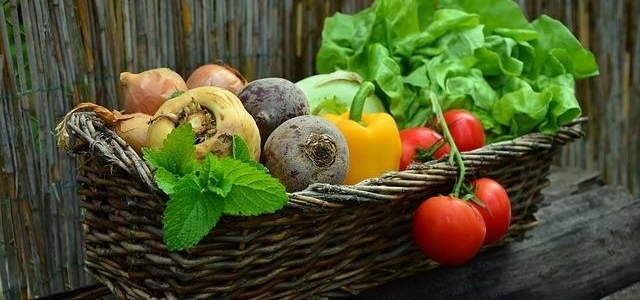Eating better for Stress Relief
Even when everything is going right and we aren’t in the midst of a global pandemic life can be stressful. That said, many people report turning to comfort food as a coping mechanism. The problem is, you may actually be making the problem worse by that very action.
Refined carbs (those cookies and potato chips you’ve just downed) spike blood sugar levels and then cause it to crash, increasing stress and anxiety. Choosing healthy foods on the other hand has the opposite effect, creating a favorable hormone signaling in the brain, which supports satiety, mood regulation and sleep and energy balance.
It might help to note that those cravings for unhealthy snacks when stressed aren’t entirely your fault. When your stress levels are high, your body pumps out hormones that rev your appetite and send us straight for the junk food isle. Meanwhile stress can lead to a loss of lean muscle mass, which decreases your metabolism and increases your risk for weight gain.
As if you needed more to worry about right now. We’ve taken the guess work out of finding healthy, stress busting foods to include in your diet and compiled a list of some of the best foods below.
Dark Chocolate-
This treat could help reduce stress in two ways — via its chemical impact and its emotional impact. Chocolate feels like such an indulgence that it can be a real treat to simply savor a piece of it, and that feeling alone can help reduce stress, says Meyerowitz. Dark chocolate, which is also rich in antioxidants, can also lower levels of stress hormones in the body.
Whole Grain Carbs-
Low-carb keto diet followers, take note: The right carbs can act as stress busters! According to MIT, carbohydrates can increase levels of serotonin, a chemical in the body that helps boost mood and reduce stress. More serotonin means more concentration and a more productive workday. But picking the right carbs is critical. Refined carbs — such as chips, cookies, and crackers — are tied to inflammation, stress, and depression, according to a May 2010 study in Psychosomatic Medicine. These carbs may also raise your blood pressure, straining your heart health, suggests a 2016 review in Progress in Cardiovascular Diseases, and lead you to overeat later in the day, other research suggests. Complex carbs, on the other hand, can do wonders for your stress levels because they digest more slowly and keep blood sugar levels more even, according to Harvard Medical School. Sources of complex carbs include sweet potatoes and whole grains (such as whole-grain bread, quinoa, brown rice, and steel-cut or old-fashioned oats).
Bananas-
For a quick pick-me-up, skip Starbucks and reach for a banana instead. The yellow, potassium-rich fruit contains the mood-boosting chemical dopamine, along with magnesium, levels of which plummet during stressful times. A preliminary study published in Neuropharmacology also found that magnesium deficiency increased depression and anxiety symptoms in mice. Bananas are furthermore a rich source of certain B vitamins, such as vitamin B6, which helps the nervous system run correctly, and can decrease stress and fatigue, according to a July 2010 study in Psychopharmacology that looked at the use of high-dose B-complex vitamins. An added perk: The potassium bananas offer can help lower high blood pressure, according to Harvard Medical School.
Fatty Fish-
Stress can tax the heart, but noshing on fatty fish can help strengthen your ticker and boost your mood, to boot. Heart-healthy omega-3 fatty acids in whole fish like tuna, halibut, salmon, and sardines may help ease depression, suggests a September 2015 review in Journal of Epidemiology & Community Health. Lowering overall stress and anxiety is another possible benefit, according to a study in the August 2015 Clinical Psychopharmacology and Neuroscience.
Water-
Looking for a quick and simple way to ease stress? Fill your cup with water and sip away! The importance of hydration during stressful times is well-documented. Even mild dehydration can increase cortisol levels, which contributes to increased stress.
Nuts-
Nuts are a boon to your health in more ways than one. First, they’re satiating, meaning they can help ward off unhealthy cravings. Second, they could help lower blood pressure, according to a July 2012 study in Hypertension, which focused on pistachios. And third, Meyerowitz says, their B vitamins have been shown to help lower stress levels. Just remember to reach for only a small handful, as nuts are calorie dense and can lead to weight gain if you eat too many.
Oranges and other Vitamin C rich foods-
Vitamin C will not only ward off scurvy — the nutrient can also keep stress at bay.
Avocados-
Avocados are packed with healthy monounsaturated fats, vitamin C, vitamin B6, potassium, and fiber, making for a perfect stress-fighting snack. As mentioned, vitamins C and B6 can help reduce stress, and the fruit’s potassium may help lower blood pressure. Not to mention, the healthy fat and fiber in avocados can help contribute to satiety, discouraging you from unhealthy snacking when you’re stressed.
Leafy Greens-
You might think desk salads are boring, but for lowering stress, they may be one of the best choices you can make at lunchtime. Leafy-green vegetables, such as spinach and kale, as well as other raw fruits and veggies, are stress-busting powerhouses, As a rich source of magnesium, leafy greens can help regulate cortisol and blood pressure levels. Plus, green leafy veggies contain folate, which plays a key role in the production of the feel-good chemical dopamine.




